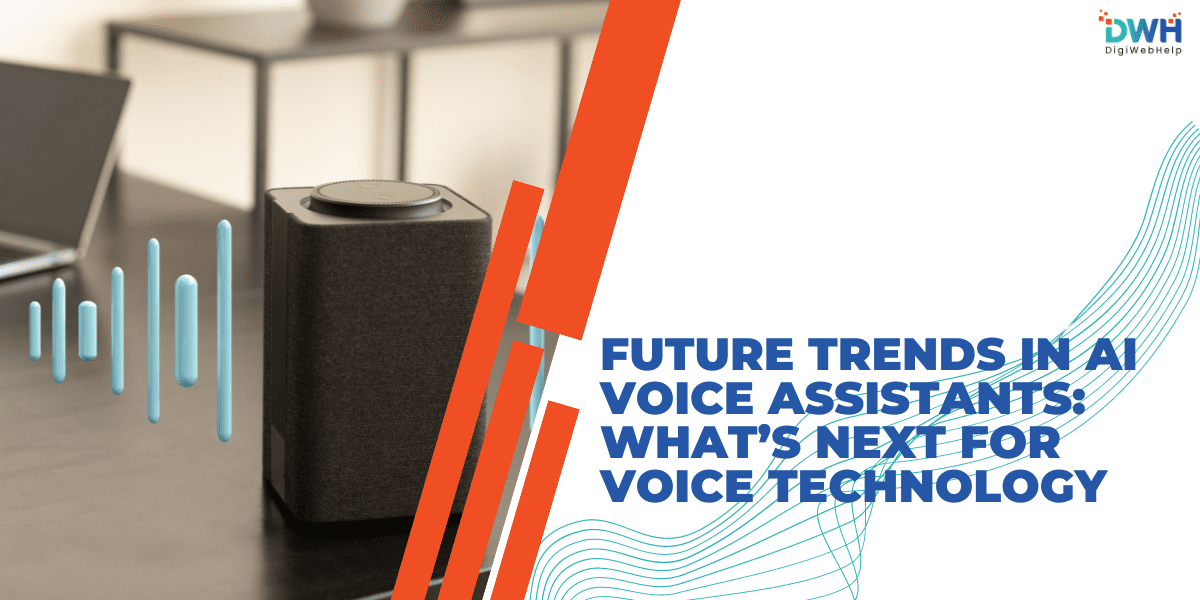
Future Trends in AI Voice Assistants: What’s Next for Voice Technology?
Voice technology is rapidly transforming the way users interact with their devices. It has evolved from basic voice commands to sophisticated AI-driven assistants that can handle complex tasks. Voice assistants like Amazon’s Alexa, Apple’s Siri, and Google’s Google Assistant have become integral parts of our daily lives.
These voice-based assistants have come a long way since their inception. Technological advancements like natural language processing, personalized user experiences, and integration with smart home devices have significantly enhanced their functionalities and usefulness. As we look into the future, the potential of voice technology seems limitless, promising even more intuitive and personalized interactions.
The Importance of Voice Technology in Today’s Digital Landscape
Voice technology isn’t longer a novelty; it’s a crucial digital tool. Its convenience and accessibility make it an indispensable tool that enables users to perform tasks hands-free. Businesses are also tapping into voice technology to enhance customer experience, streamline operations, and improve accessibility. As AI continues to evolve, voice assistants are ready to become even more central in our personal and professional lives.
1. Enhanced Natural Language Processing (NLP)
AI voice assistants have made a big leap forward thanks to improvements in natural language processing (NLP). NLP allows voice assistants to understand and interpret human language more accurately. So, making a conversation with your voice assistant more natural and intuitive. In the future, NLP is set to become even more sophisticated. This enables voice assistants to understand context and intent, resulting in more human-like interactions.
For example, instead of simply answering direct demands, future voice assistants will understand more nuanced language and follow multi-step instructions seamlessly. This enhanced capability will make your voice assistant more intuitive, allowing them to anticipate user needs and provide more relevant and accurate responses.
2. Multilingual and Cross-Cultural Capabilities
As voice technology continues to advance, breaking language barriers will be a key focus. Currently, many AI voice assistants support multiple languages, but their effectiveness depends on the language and region. Future voice assistants will be equipped with more robust and cross-cultural capabilities for handling multiple languages and cultures. They’ll understand and respond to a wider range of languages and dialects with accuracy.
This technological development will be particularly helpful in worldwide markets. Here, businesses and individuals will communicate in many languages and cultures. AI voice assistants will facilitate smoother communication, becoming a crucial tool in our interconnected world.
3. Personalized User Experiences
Personalization is a major trend in AI technology, and voice assistants are no exception. Future voice assistants will use AI to offer highly personalized user experiences to provide responses and actions based on individual preferences, behavior, and personal data. For example, a music recommendation that matches your play history or a reminder about an upcoming appointment that aligns with your daily routine.
This integration of personal data enables voice assistants to provide more relevant and contextually appropriate responses. This improves the user engagement and satisfaction. So, users will likely form stronger connections with their voice assistants and rely on them for more than just basic tasks.
4. Integration with IoT and Smart Home Devices
Voice assistants are already central to the smart home ecosystem. These assistants act as hubs that allow users to control various IoT devices with simple voice commands. As more devices link to the Internet of Things (IoT), the interaction between voice assistants and smart home devices will become easier.
In the future, we can expect voice assistants to control more devices. Lights, thermostats, security systems, kitchen appliances, and more can be controlled with voice assistants. This integration of voice and technology makes smart homes more intuitive and user-friendly.
5. Privacy and Security Enhancements
With the increasing adoption of AI voice assistants, concerns about privacy and data security have come to the forefront. Users are becoming more aware of the potential risks associated with sharing personal information with AI-driven devices. To deal with this, future voice assistants will prioritize privacy and security. They’ll use advanced encryption and secure data storage to protect user information.
Emerging trends in voice assistant will include the use of secure voice interactions. This will include voice biometrics that ensures only authorized users can access certain functions. Additionally, voice assistants will offer more transparency regarding data usage. This way, users can have a better control over their personal information.
6. AI Voice Assistants in Business and Enterprise
More and more businesses are adopting AI voice assistants. Organizations are recognizing the potential of voice technology to enhance productivity and streamline operations. More businesses will integrate voice assistant technology into their workflows in the future. These assistants can handle various tasks, including scheduling meetings, handling reminders, and automating customer service tasks.
Voice assistants also help enhance communication and collaboration within teams. For example, voice assistants can assist in transcribing meetings, setting up conference calls, and providing updates on project progress. These capabilities will make voice assistants invaluable tools in modern workplaces.
7. The Role of AI Voice Assistants in Healthcare
AI voice assistants are making a significant impact in the healthcare sector. They are being integrated into telemedicine platforms. This allows patients to interact with their healthcare providers remotely using voice commands. Voice assistants will play a crucial role in patient care in the future. These assistants will manage various tasks, such as scheduling appointments and providing medication reminders.
Moreover, voice assistants enhance accessibility for people with disabilities to use healthcare services. Future developments in healthcare driven by AI voice assistants will offer more advanced diagnostics and personalized treatment plans based on data analysis.
8. The Ethical and Social Implications
AI voice assistants are becoming more common. This rise has led to a need to address the ethical and social implications of this technology. A primary concern is the potential for bias in AI algorithms. This could cause unfair treatment to certain groups of people. Developers should prioritize fairness and inclusivity when developing voice assistants. This helps make sure they serve all users equitably.
The growth of voice technology also raises questions about its impact on society. While voice assistants have many benefits, their convenience could lead to increased dependency on technology and reduced human interaction. As we progress, it’s essential to strike a balance between embracing the benefits of AI voice assistants and maintaining connection with human experiences.
Conclusion
The future of AI voice assistants is incredibly promising. The advancements in technologies like natural language processing, personalization, and IoT device integration is set to revolutionize the way we interact with technology.
Voice assistants are becoming intuitive and secure, playing an important role in our personal and professional lives. However, it is crucial to address the ethics and social implications of voice technology to ensure it benefits society as a whole.










